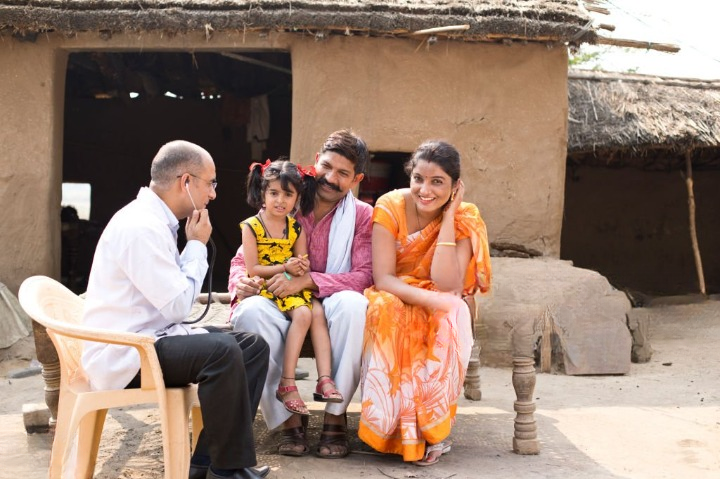
The Role of AI in Enhancing Public Health Initiatives in India
- admin
- August 20, 2025
- Development, Government, Technology
- 0 Comments
“Transforming Public Health: How AI is Revolutionizing Healthcare Delivery Across India”
Highlights at a Glance:
- AI is driving improvements in public health by enabling predictive analytics, streamlining diagnostics, and enhancing resource allocation.
- From pandemic management to rural healthcare outreach, AI-powered tools are bridging critical gaps in India’s health infrastructure.
- Government collaborations with tech companies and startups are accelerating the integration of AI into national health initiatives.
By the Numbers:
- AI-driven health initiatives have reduced diagnostic turnaround times by 30%, according to the Ministry of Health and Family Welfare.
- Predictive analytics has enabled 20% more efficient allocation of public health resources during outbreaks like COVID-19.
- The Indian AI healthcare market is expected to grow at a 40% CAGR, reaching $7 billion by 2030 (NASSCOM 2023).
AI: A New Pillar for Public Health
Artificial Intelligence (AI) is becoming a cornerstone of public health initiatives in India. By leveraging its capabilities in data analysis, disease prediction, and healthcare delivery, AI is addressing longstanding challenges such as unequal access to medical care and overburdened health systems.
Predictive Analytics for Disease Control
AI-powered predictive analytics tools are enabling authorities to foresee and mitigate health crises. During the COVID-19 pandemic, AI models analyzed infection trends, facilitating early interventions. These tools have been instrumental in improving vaccination rollouts, with predictive models helping prioritize vulnerable populations, reducing vaccine wastage by 15% in states like Uttar Pradesh and Maharashtra.
Streamlining Diagnostics and Early Detection
AI is revolutionizing diagnostics in public health programs. Machine learning algorithms can analyze X-rays, MRIs, and CT scans, identifying diseases like tuberculosis, cancer, and cardiovascular conditions with higher accuracy. For instance:
- AI-powered diagnostic tools under the Revised National Tuberculosis Control Program (RNTCP) have reduced TB detection time by 25%, according to a 2023 WHO report.
- Startups like Qure.ai are providing AI-based radiology solutions that are being deployed in rural healthcare centers to improve early detection.
Enhancing Rural Healthcare Delivery
AI is bridging the urban-rural divide in healthcare. With 70% of India’s population residing in rural areas, AI tools are making specialized healthcare accessible in remote regions:
- Telemedicine platforms powered by AI, such as Practo and 1MG, enable rural patients to consult with urban-based specialists.
- AI-enabled drones are being used to deliver vaccines and essential medicines to inaccessible regions, cutting delivery times by 40%.
AI in Health Resource Allocation
AI is streamlining the allocation of health resources across India. By analyzing population health data, AI tools help policymakers identify areas requiring urgent attention. For example, during dengue and malaria outbreaks, AI algorithms have guided the deployment of medical supplies and personnel, reducing response times by 20%.
Personalized Public Health Campaigns
AI is enabling the design of more targeted public health campaigns. Tools like natural language processing (NLP) analyze social media and local dialects to identify community-specific health concerns. These insights help craft campaigns that resonate with diverse populations, improving participation in programs like immunization drives.
Challenges in AI Integration
Despite its benefits, integrating AI into public health initiatives faces challenges:
- Data Privacy Concerns: The collection and use of health data raise ethical and legal issues, particularly in the absence of robust data protection laws.
- Infrastructure Gaps: Rural areas lack the digital infrastructure needed to support AI-powered healthcare tools effectively.
- Cost Barriers: High costs of advanced AI technologies pose adoption challenges, especially for smaller healthcare providers.
The Road Ahead: AI’s Expanding Role in Public Health
The future of AI in Indian public health is bright, with several promising trends on the horizon:
- AI-powered genomics will enable early identification of genetic predispositions, facilitating preventive healthcare.
- Predictive models will continue to enhance epidemic response capabilities, minimizing the impact of future outbreaks.
- Collaborations between government, tech giants, and startups will drive the development of cost-effective AI solutions tailored to India’s unique needs.
By 2030, experts predict that 80% of public health programs in India will integrate AI in some form, making healthcare delivery more efficient, equitable, and responsive.
AI is not just a tool; it is a transformative force in public health. By addressing systemic inefficiencies and enabling innovative solutions, AI is paving the way for a healthier India. With continued investments and strategic collaborations, AI has the potential to revolutionize public health, ensuring better outcomes for millions of Indians.


